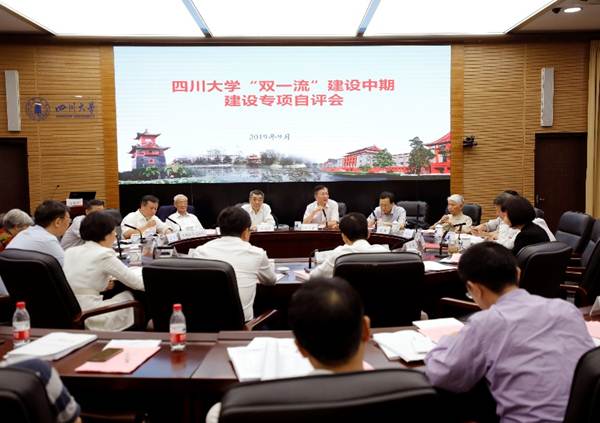
On September 5th , SCU held a midterm self-assessment meeting on the construction projects of "double first-class" status in Mingde Building, Wangjiang Campus. SCU experts and scholars gathered together to evaluate and assess the construction of individual “double first-class” projects. Those present at the meeting included Chairman Jianguo Wang of the university council, President Yanrong Li, all the university administrators, all members of the university academic committee, college deans, and primary leaders of relevant departments. Vice President Weilin Xu presided over the meeting.
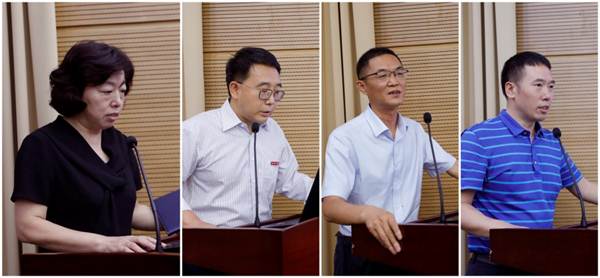
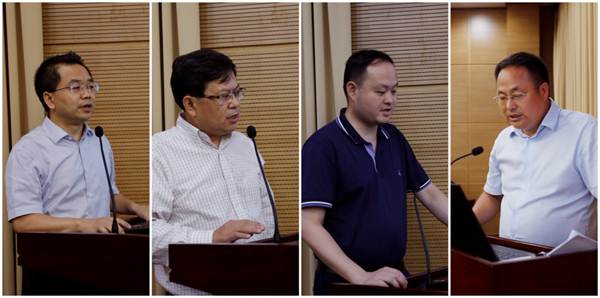
At the meeting, department leaders respectively made a report of the ten leading projects with regard to their achievements, progress in accordance to the targets, comparison of SCU accomplishments with those of other universities, existing problems, and measures to improve. The department leaders were Hongwei Zhang, Shuangjiu Li, Changsheng Zhao, Qilin Fu, Liangyin Chu, Zhigang Yang, Sijie Zhang, Guochun Hua. They also compared and analyzed the gaps and problems, putting forward improvement measures in accordance to SCU situation.
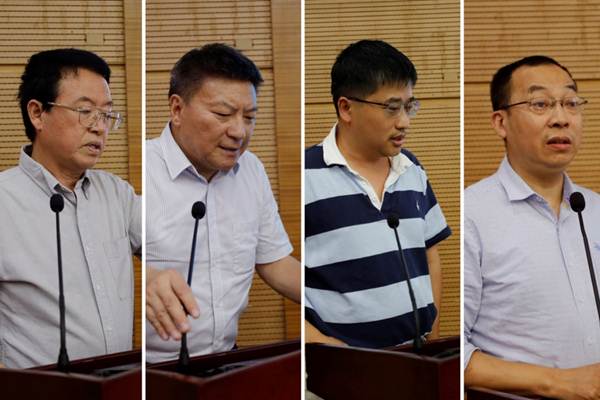
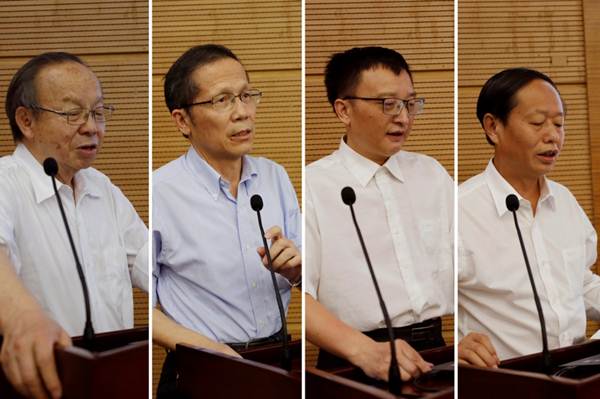
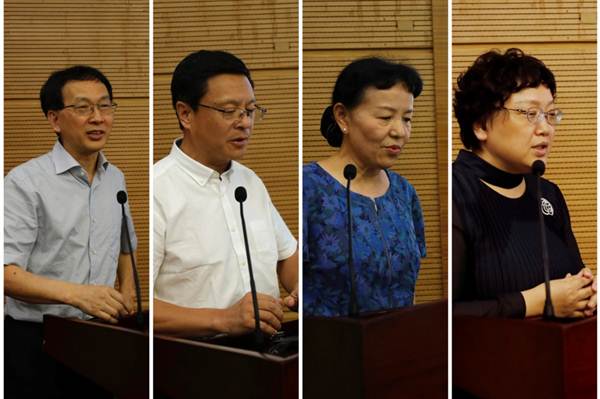
Professor Shunqing Cao, Professor Weijie Huo, Professor Baihui Chen, Professor Jinsong You, Academician Xingdong Zhang, Professor Guangxian Li, Professor Xingguo Yang, Professor Youjie He, Academician Yuquan Wei, Professor Xuehong Wan, Professor Xuedong Zhou and Professor Xiaoping Jiang are the chief scientists and principal leaders of 12 key disciplines (groups) respectively. They made a report on the construction of their individual disciplines (groups). In their respective reports, they each analyzed the gaps and problems in the discipline construction, and put forward some measures to further improve the core competitiveness and enhance the strength of the discipline. The university administrators and academic committee members evaluated the construction of “ten first-class projects” and “12 first-class disciplines/groups”, and they made constructive suggestions to accelerate the construction of “double first-class” status at Sichuan University.
Yanrong Li pointed out in his speech that SCU construction of “double first-class” status ought to be attributed to the concerted effort of all faculty and staff. Looking at the big picture, we have made headway more than we anticipated. And the problems are more challenging than we thought. The primary problem lies in the fact that our core competitiveness is not up to par and landmark achievements are limited. In the next step, what is important of the double first-class construction is to do well in the following three aspects: first, to speed up the construction in an all-round way; second, to improve the overall quality; and third, to break through at key points. We should spend our limited time and energy on important things. We should have goals rather than go rigidly by set targets. Taking extraordinary results and high-end talents for our most important task, we must work hard at the number of talents, quality of scientific research, level of talent training, and improvement of school running condition. As long as individual chief scientists, individual responsible colleges and schools, and individual leading departments can aim at the standards and benchmarks, we will be able to complete the construction of double first-class status by means of daring to compete and pursuing remarkable results.
In his speech, Jianguo Wang pointed out that we must face the problems in the construction of "double first-class" status squarely. The biggest problems are the lack of original and representative achievements, the lack of high-end talents and the insufficient number of talents. Individual disciplines (groups) must gauge their performances against benchmarks and standards, find out the gaps and make up for the weaknesses and endeavor to improve constantly. All colleges and functional departments should provide adequate policy support and good service for the construction of "double-first-class" status. Policies should be promulgated to address the toughest problems in the construction of "double first-class" status, and institutional mechanisms should be reformed to provide financial support and human resources for the construction of "double first-class" status.
